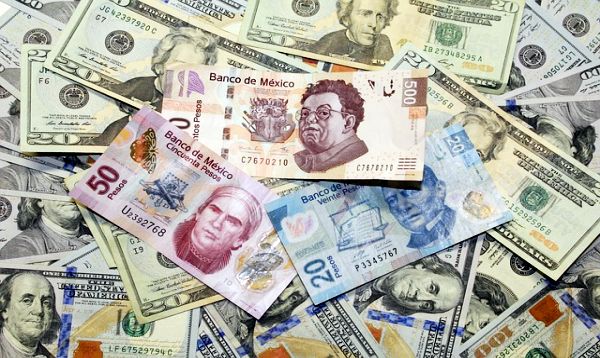Washington D.C. - Cash transfers to Mexico jumped 15 percent in March compared to the same period last year, making the month one of the biggest ever recorded for transfers sent by individuals to friends and family abroad.
Mexicans received $2.5 billion in the cash transfers, known as remittances, in March compared to $2.2 billion a year earlier, according to Mexico's central bank, Banxico.
The March take is the third largest in U.S.-Mexico remittance history, after October 2008 ($2.6 billion) and May 2006 ($2.5 billion).
Monthly remittances usually dip to their lowest in January, after the holiday season, and start climbing in February. This year, the pattern changed, with Jan and Feb both netting $2 billion in remittances.
The cash transfers have gained political significance after President Trump proposed taxing or impounding remittances as a potential method to make Mexico pay for a wall along the United States' southern border.
Remittances last spiked in November as Mexican immigrants in the United States reacted to Trump's election.
Even though remittances have consistently risen, the number of Mexicans illegally in the United States is on the decline, according to a recent Pew report.
The rise in remittances despite the decrease in undocumented population suggests familial and social links remain strong between remittance senders - regardless of their immigration or citizenship status - and their friends and relatives in Mexico.
Banxico figures show that the number of operations and the size of each transaction also rose in March. The size of the average transaction increased 24%, from $291 to $316. The total number of operations jumped 6.1%, from 7,517 a year earlier to 7,976.
Remittances are generally received in some of the poorest communities in Mexico and play a strong role in supplementing government poverty assistance programs.
Remittances are not taxed because they are transfers of previously owned money rather than payments for goods or services. Mexico does not tax receptors of remittances as long as the transfers are for less than a predetermined amount.
Original article


